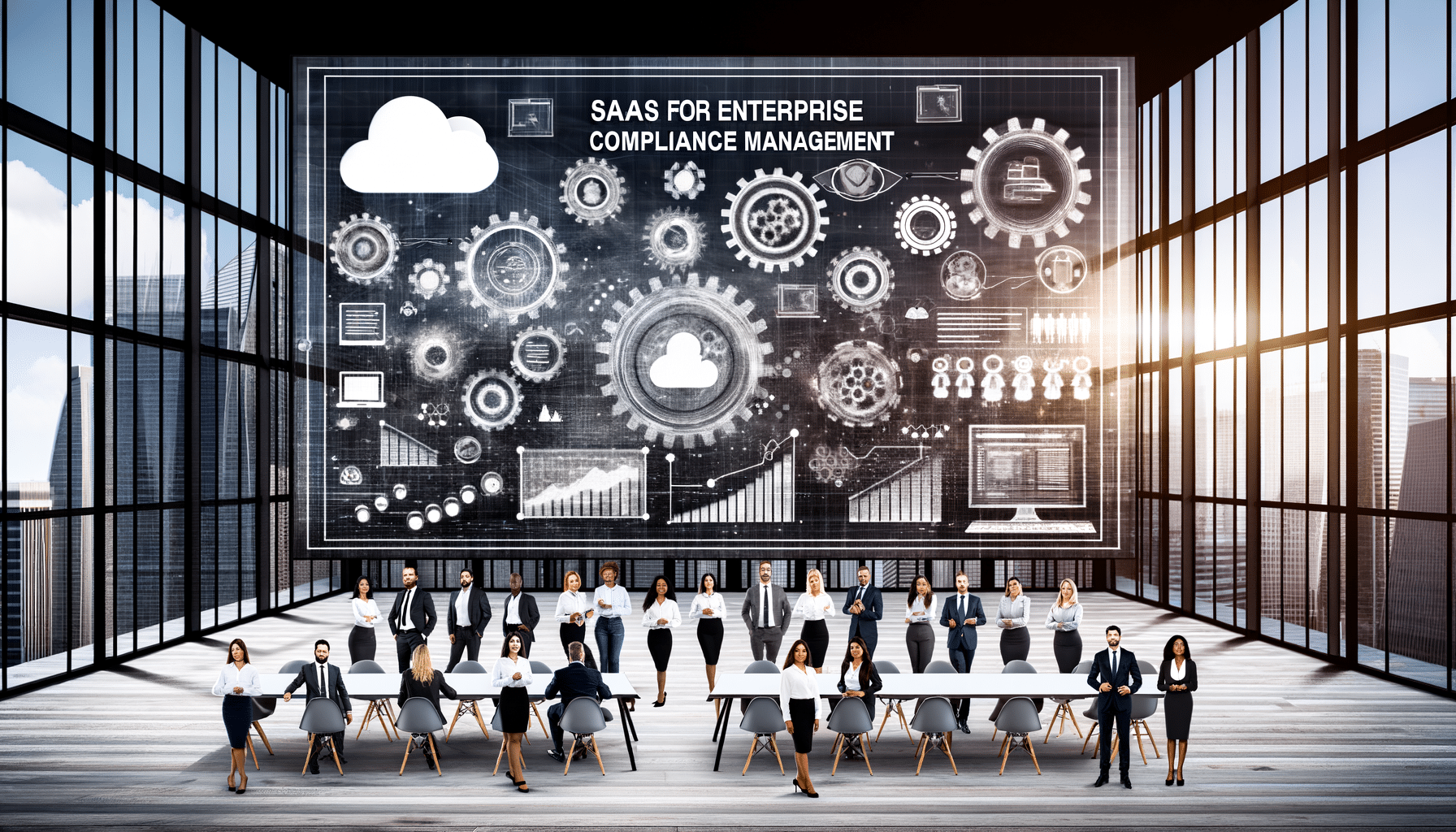- Legal Technology
- November 16, 2024
SaaS for Enterprise Compliance Management

As compliance demands grow increasingly complex, businesses of all sizes are searching for effective ways to manage their obligations without draining resources. I’m excited to discuss how Software as a Service (SaaS) solutions, like our platform at RecordsKeeper.AI, are transforming enterprise compliance management. In this article, I’ll explore how automation and SaaS can streamline compliance, enhance operational efficiency, and mitigate potential risks.
Understanding the Compliance Conundrum
Understanding the intricacies of compliance demands time, effort, and precision—qualities that organizations often lack in abundance. Regulatory requirements like GDPR, HIPAA, and SOX introduce multiple layers of complexity that can easily overwhelm traditional compliance management methods.
Yet, here lies an opportunity—a chance to leverage technology and innovation to turn what was once a burden into a strategic asset. As the founder of RecordsKeeper.AI, I have witnessed firsthand how AI and blockchain technology can revolutionize compliance by making it automated, accurate, and auditable.
The Power of SaaS in Compliance Management
SaaS platforms offer a flexible, scalable, and cost-effective solution for managing compliance. With SaaS, organizations don’t need to worry about maintaining infrastructure or updating software manually. Instead, the service provider takes over these responsibilities, rolling out updates automatically to all users. This facilitates the seamless integration of new compliance measures as soon as they are enacted.
Here are a few ways that SaaS platforms enhance compliance management:
- Automation: By automating routine compliance tasks, SaaS reduces human error and frees up valuable resources for strategic tasks.
- Real-time Monitoring: SaaS tools offer real-time monitoring capabilities, helping organizations identify compliance issues before they escalate.
- Cost Efficiency: With a subscription-based pricing model, SaaS reduces the need for large upfront investments, making compliance management more accessible to businesses of all sizes.
Automation: The Heartbeat of Modern Compliance
Automation stands at the forefront of compliance innovation. By integrating AI-driven tools into SaaS platforms, we can automate everything from data categorization to regulatory reporting. Imagine having a system that not only keeps track of compliance requirements but also effectively manages policy enforcement, data retention, and deletion tasks with minimal human intervention.
In my experience, automation not only improves compliance accuracy but also provides robust reassurance to stakeholders and regulators. It allows organizations to demonstrate compliance readiness with comprehensive, audit-ready reports generated at the click of a button.
Ensuring Data Security through Blockchain
RecordsKeeper.AI takes data integrity a step further by incorporating blockchain technology—a feature I am particularly proud of. Blockchain’s immutability ensures that records are tamper-proof, providing an extra layer of security that’s crucial for regulatory compliance.
Furthermore, the transparency offered by blockchain instills confidence in stakeholders, who can trust that records are authentic and unaltered. This enhanced level of trust is invaluable in an era where data breaches and fraud can have significant repercussions.
Overcoming Compliance Challenges with Precision
Despite the advancements, compliance management is not without its challenges. Many organizations find themselves burdened by the sheer volume of compliance documentation and the rapidly changing regulatory landscape. However, with the implementation of intelligent SaaS solutions, these challenges can be effectively navigated.
At RecordsKeeper.AI, we’ve crafted our platform to adapt to new compliance rules rapidly, incorporating additional functionalities as required. This ensures our users remain ahead of the compliance curve, reducing the risk of penalties and reputational damage.
Key Takeaways
Adopting a SaaS approach for enterprise compliance management offers numerous benefits. By automating compliance tasks, facilitating secure data management, and offering real-time compliance monitoring, organizations can gain a competitive edge. Importantly, businesses can focus their resources on core activities without compromising on regulatory requirements.
I encourage finance, legal, and compliance professionals to consider the transformative benefits of SaaS for their organizations. Let’s embrace technology to make compliance less of a daunting task and more of a strategic advantage.
To learn more about how RecordsKeeper.AI can revolutionize your compliance processes, or to gain further insights from my entrepreneurial journey, follow my updates and stay connected with our innovative solutions.
Toshendra Sharma is the visionary founder and CEO of RecordsKeeper.AI, spearheading the fusion of AI and blockchain to redefine enterprise record management. With a groundbreaking approach to solving complex business challenges, Toshendra combines deep expertise in blockchain and artificial intelligence with an acute understanding of enterprise compliance and security needs.
Related Posts

Managing Records During IT System Changes
Keeping records accessible during system updates.
- December 11, 2024

AI for Dynamic Data Masking in Sensitive Records
Protecting sensitive records through dynamic data masking with AI.
- November 16, 2024
Archives
- December 2024
- November 2024
- October 2024
- September 2024
- August 2024
- July 2024
- June 2024
- May 2024
- April 2024
- March 2024
- February 2024
- January 2024
- December 2023
- November 2023
- October 2023
- September 2023
- August 2023
- July 2023
- June 2023
- May 2023
- April 2023
- March 2023
- February 2023
- January 2023
- December 2022
- November 2022
- October 2022
- September 2022
- March 2019
Want to get more content like this?
Signup to directly get this type of content to your inbox!!
Latest Post
Organizing External Auditor Access
- December 22, 2024
Document Control in Manufacturing Plants
- December 21, 2024
Handling Rush Financial Report Requests
- December 20, 2024
Managing Record Access After Staff Changes
- December 19, 2024





